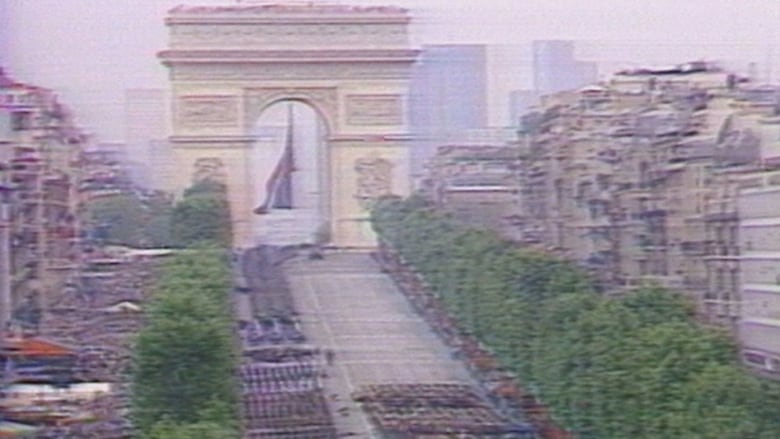Only in France: 6 stories for Bastille Day
CBC correspondents have found many memorable stories while working in France over the years

As we do in Canada, our friends in France have a national holiday that is celebrated in July.
Called Bastille Day, it celebrates the country's revolutionary history and it arrives on July 14 of each year. French citizens across the country typically mark the occasion by watching parades and fireworks displays.
Over the years, CBC correspondents have reported on many aspects of life in France, including its traditions, culture and institutions.
For Bastille Day, here are a few samples of some of the most memorable stories that CBC journalists in France have filed over the years.
French-style 'Canadian' food
In December 1974, Joe Schlesinger was reporting on a new Parisian restaurant that would be of interest to CBC viewers back home.
That would be a restaurant specializing in "Canadian" food.

But Schlesinger found that a lot of what was being served wouldn't have been familiar choices on menus back in Canada, pointing to salmon croquettes and neatly presented smoked meat as two such examples.
"If the food here is not exactly what a Canadian would recognize as being Canadian, it's no further from the real stuff than what passes as French cuisine at some restaurants in Canada," he told viewers.
A chance to relax (but only in France)
The cafes were going to be packed in Paris in 1983, but presumably with a lot more locals than usual.
That's because the French government had put limits on how much money its citizens could spend on travel outside of the country, which severely limited vacation options.

"The socialist government's tough austerity program virtually forces the French to take their holidays at home," the CBC's David Bazay reported on The National on March 25, 1983.
He reported that the French government had imposed some $12 billion in new taxes and charges, as part of broader austerity measures at that time.
The day everything changed ... for phone users
In the mid-1980s, France was running out of seven-digit phone numbers, which prompted a $1-billion effort to revamp things.
The decision was made to go to an eight-digit phone number, with an ambitious plan to roll out the new system across the entire country all on the same day.
The CBC's Don Murray reported on this news the day the change was made on Oct. 25, 1985.
The switch was made on a Friday, to provide a buffer for the headaches that could come with the first full work week with all-new numbers to dial.
The robots and their quality cheese
Ce n'est pas possible — robots making Camembert as well as humans did?
In 1986, that appeared to be the case.
That December, The National aired a report by Don Murray on the fact that, after several years of practice, robot-aided cheese-making was making top-notch Camembert.
"Liberty, equality, Camembert," he said, substituting fromage for fraternité in the state motto of France at the end of his report.
'The blazing seat'
Concerns about personal safety seem to have been the driving force behind a product that drew some media attention in 1987.
And the so-called "blazing seat" was aimed at keeping taxi drivers safe by allowing them to press a button that would send an electric shock through the back seat of a taxicab.
"It will deliver a shock of 52,000 volts to a misbehaving client at the touch of a foot pedal," said the CBC's Sheila MacVicar, when describing the product's capabilities on The National in November of that year.
'An American assault on French culture'
Disney may have spent five years planning and nearly $5 billion to build a theme park outside Paris, but that didn't impress some of its new neighbours when it opened.
"Among the intellectual elite in Paris ... Euro Disney is seen as an American assault on French culture," CBC reporter Dan Bjarnason told viewers on The National, when reporting on the theme park's opening in April 1992.
Bjarnason's report featured images of French newspapers that were covering the story, including one that compared the new park to a "cultural Chornobyl."

Despite the criticism, Disney went all out for the opening, arranging for Mickey Mouse to ride along a parade route in a limousine.
Three decades later, the park remains in operation, though it is today called Disneyland Paris.






